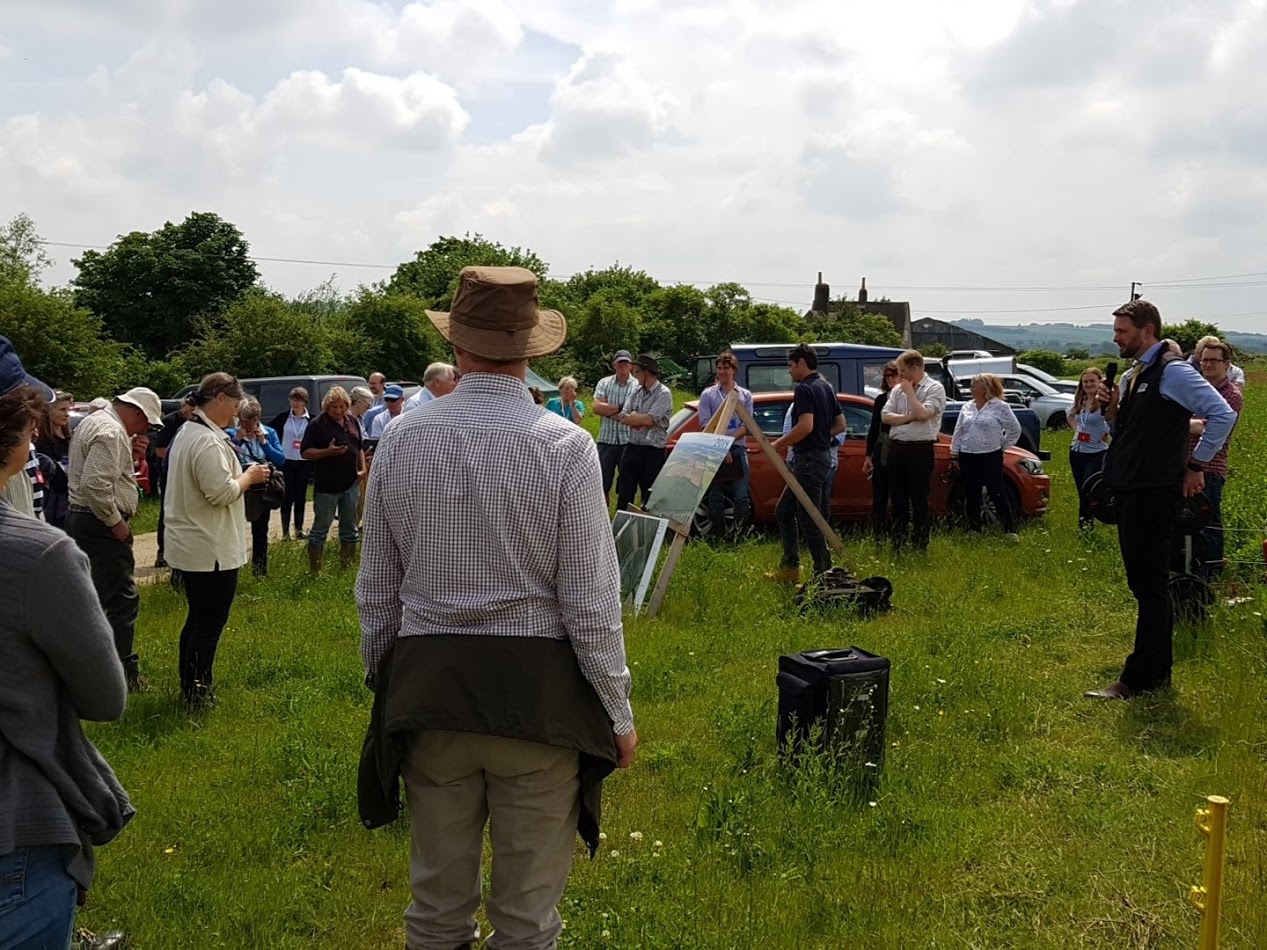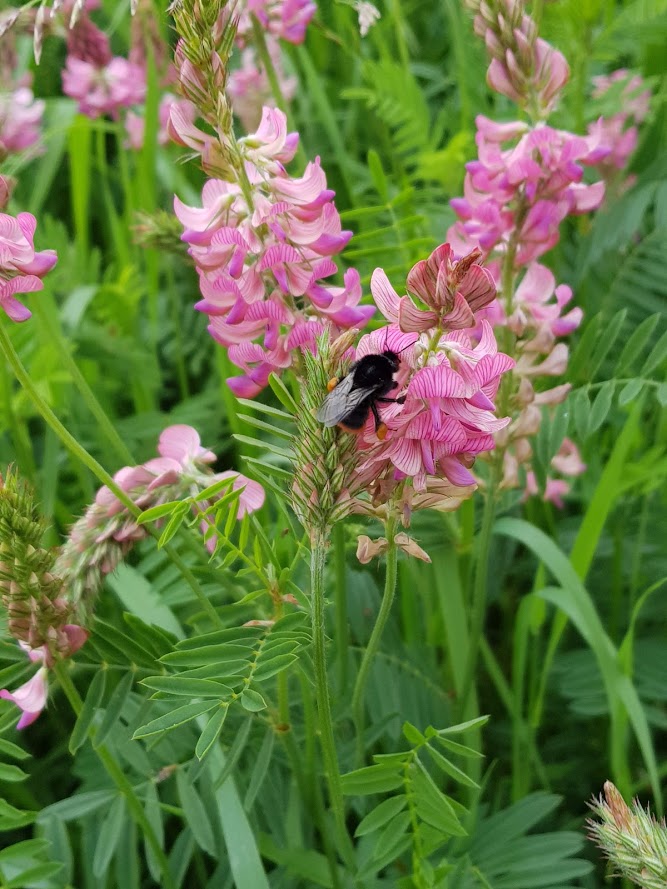Sainfoin is a plant that’s been grown by farmers for centuries to feed livestock, but its use has declined in recent decades. Research led by Professor Irene Mueller-Harvey and others has investigated the plant’s bioactive components – tannins. And it’s sparking a revival in its use. Reading’s Dr Sokratis Stergiadis tells us about a recent open day to explain the benefits of growing Sainfoin to farmers.
Sainfoin is a drought-resistant forage crop that fixes nitrogen and helps prevent parasitic worm infections in cattle. It also improves meat quality, helps to reduce methane production in cattle and encourages pollinating insects.
To encourage more farmers to grow Sainfoin and to share the science behind its beneficial effects, researchers from the University of Reading teamed up with staff from Cotswolds Seeds Ltd, Sainfoin’s main supplier in the UK, to host an Experience Day for 50 farmers at Honeydale Farm in Gloucestershire.
For centuries, Sainfoin was widely grown across Europe before commercial fertilisers and veterinary medication became commonplace in farming. And although enjoyed by a range of farm animals, its use declined. For over a decade, Professor Irene Mueller-Harvey has been interested in how diet affects gas emissions in farm animals. Research shows that tannins – natural compounds found in only a few fodder legumes – are responsible for its unique nutritional, environmental and veterinary properties.
The open day began with a mix of talks from scientists (including academics/researchers from the University of Reading and NIAB) and enthusiastic farmers from the UK (Cholderton Estate) and France (Multifolia) who have been growing Sainfoin successfully on their farms.

Prof Irene Mueller-Harvey opened the day with a keynote talk on tannin chemistry and the anthelmintic properties of Sainfoin, and I followed with a talk to outline the potential benefits that feeding Sainfoin can have on animal metabolism, greenhouse gas emissions and the quality of milk and meat.
Dr Anna Thomson from the University’s Centre for Dairy Research, presented an overview of a field trial with Cotswold Seeds that is part of the Diverse Forages research project funded by the Sustainable Agriculture Research and Innovation Club, which is exploring the benefits of using multispecies pastures in UK livestock systems.
Participants also enjoyed a field walk around Honeydale Farm, owned by Cotswolds Seeds, with opportunities to discover more about the technical aspects of silage and hay production and how to get the best from Sainfoin as part of an eight-year rotation with no addition of fertiliser or herbicide. They also discovered the environmental benefits of Sainfoin, hearing how it benefits soil structure and fertility as well as providing a food source for pollinators.
The event provided information for farmers to make better informed choices about the overall management of their farm in order to influence the nutritional quality of their products, including meat, milk, honey, and sustainability of their systems.
Find out more about the EU-funded LegumePlus and Healthy Hay projects.
Dr Sokratis Stergiadis is from Reading’s Animal, Dairy and Food Chain Sciences Research Group.

